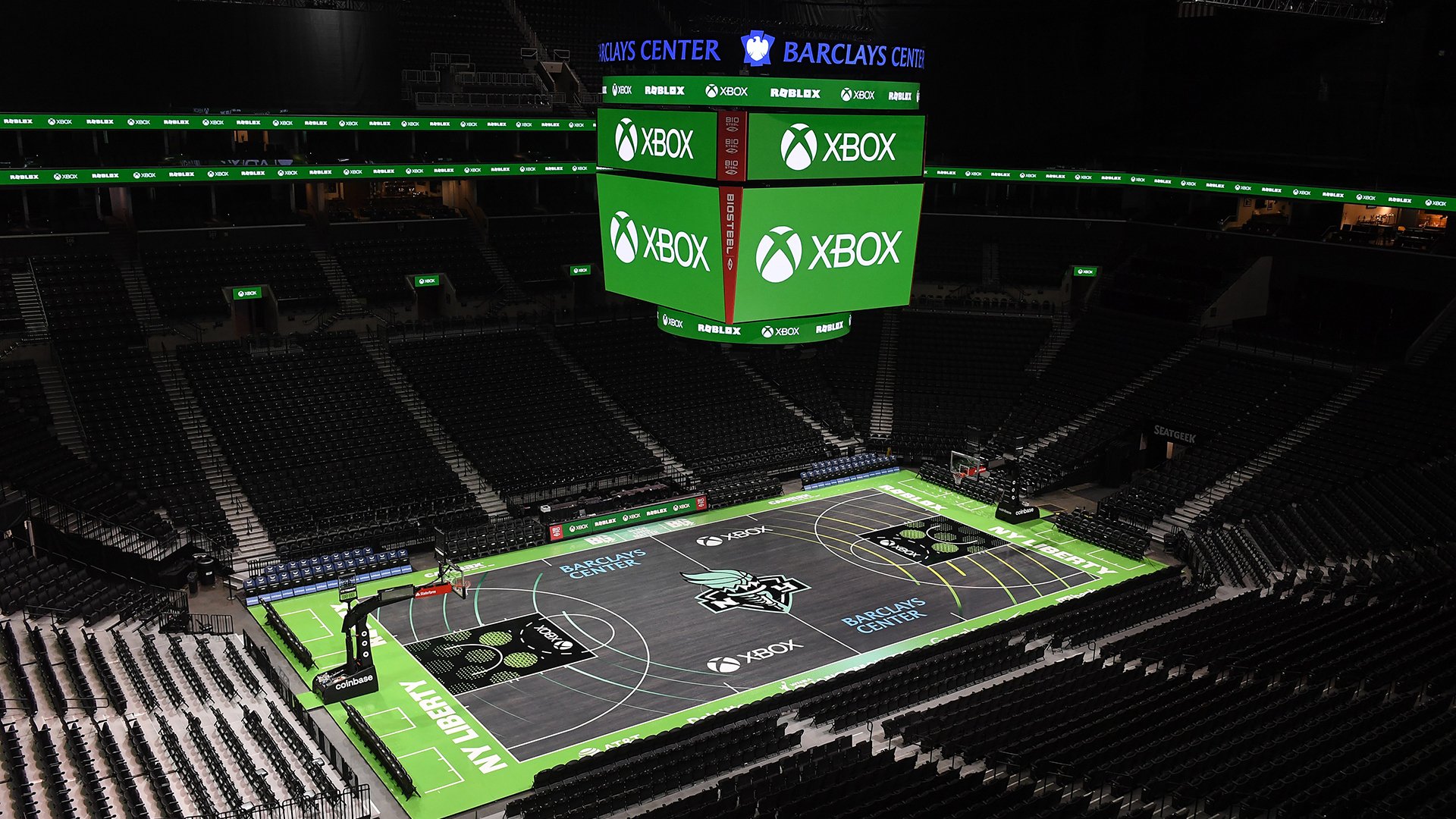
Director Joe Searching’s documentary We Met In Digital Actuality, the primary to be filmed solely within the social recreation VRChat, isn’t as compelling as its multilayered material. It’s filmed at a private vary, with Searching at all times hidden however his digital camera absorbing cartoonish faces like a curious, affected person eye. It lingers on the small print, the skin of home windows, the darkish tree leaves, the strands of hair, however Searching is simply too preoccupied with digital actuality’s floor to assist us carve out its core.
Dreamily and disjointedly, Searching follows a solid of (surprisingly homogenous-looking) VRChat gamers via 2020, clearly, a very good time for bodily isolation and feeling powerless. For Searching’s solid, the attract of VRChat is the ability it provides them.
A bespectacled in-game stripper, IsYourBoi, recounts slamming her human face right into a wall whereas dancing in VR. Whereas her actual nostril bled, she completed out the efficiency, her avatar as manicured as ever. Searching delivers this info with out commentary or a doleful, orchestral swell, opting as a substitute to quietly costume his topics’ fascination with VR the way in which Nietzsche, perhaps, categorized the Übermensch—a superhuman unattached to the binding guidelines of destiny. Searching pushes us to contemplate the way in which VRChat is all about unbinding, about pursuing life as you imagined it, and grabbing maintain of your private energy.
“You might be who you’ve at all times needed to be,” says Toaster, an anime boy with animal ears and a tail who’s in love with DustBunny, an anime lady with matching animal ears and a tail. “You’ll be able to, in a method, begin over.”
All of We Met’s solid members have totally different causes for beginning over. Toaster struggled with nervousness and performed VRChat on mute for 2 years earlier than assembly DustBunny. IsYourBoi handled a member of the family’s demise and her personal alcoholism earlier than discovering respite and even marriage in VR. In one of many film’s most poignant scenes, we see Ray_is_Deaf, who teaches American Signal Language in VRChat, utilizing the sport to heal from his brother’s suicide.
G/O Media might get a fee

As much as $200 off
Vertagear Summer time Gross sales 2022
Ergonomic premium high quality
Vertagear has plenty of gaming chairs on sale proper now. One specifically that caught our eye is the PL4500 which is embroidered with Swarovski crystals right down to $500. You can even get certainly one of their RGB kits so as to add a set of lights to both the highest cutout sections across the headrest or a backside LED equipment for $200 to mild up beneath like your chair is in Want for Velocity: Underground 2.
Standing with Jenny0629, one other in-game ASL instructor, Ray powers up a floating yellow lantern and names it his brother’s spirit going to heaven. We see the orange-tipped mild go up, up into the cloudy night time sky. The sky appears actual, typically, till you discover that there are too many stars. Or one thing appears to be switched off. Like Jenny says later whereas mendacity within the grass (in actuality, her carpet): “I want the clouds would transfer. […] Attempting to see if I may see any shapes within the clouds. I can’t.”
Searching doesn’t thoughts. He’s extra excited about these those that shrug off the bodily in trade for the unburdened digital. The digital camera drinks within the looseness—the digital our bodies that glitter and alter eye colours like footwear—and the tight knit of the relationships borne from it. On this matter, professor of cinema research Barbara Creed wrote in her 2003 ebook Media Matrix that the “world self” is “digital, fluid, aware of each its speedy native world […] and of the opposite ‘worlds.’”
We and Searching can discover the worldwide self breadcrumbed all through VRChat. The documentary’s topics are enamored by with the ability to transcend their bleak realities, taking refuge within the issues they’ve seen, discovered, and gathered on the worldwide platform. They will attest to their avatars making a purer model of themselves whereas craving for IRL meet ups and discovering no contradiction there. On-line, to them, is a spot of celebration, the place they will come collectively, laughing, for a New 12 months’s Eve celebration, or sobbing throughout IsYourBoi’s digital marriage ceremony, as genuinely as you may need as soon as from an actual church pew.

Ray lets the lantern go, individuals cry and coo through the marriage ceremony, however as a substitute of relishing this permeable actual, digital world, I received caught on the unfinished greater image. And, sadly, the glitches. They may not be memorable to these already aware of VRChat, however for the broader viewers that We Met seeks to introduce the sport to, the choppiness will set hearth to any bold metaverse expectations. The reality isn’t any Tron, and even I discovered messy visuals stark towards the movie’s refusal to deal with them, in addition to towards HBO Max’s sleeker reality-bending choices like Irma Vep and Belle.
VRChat’s technical pitfalls distract from the relationships We Met would a lot slightly us give attention to. Throughout a celebration scene, I preferred witnessing the revelry, the bunnies and scorching women coming collectively as one, however I used to be delay by the fingers phasing via glasses of beer. I laughed throughout IsYourBoi’s marriage ceremony, when her avatar’s time and space-defying breasts bounced worriedly as she walked down the aisle.
I discovered myself forming extra questions on VR as I watched as a substitute of being happy with We Met’s cheery solutions. Lovingly, Searching prescribes what French sociologist Jean Baudrillard described in Simulacra and Simulation about Disneyland to VRChat, “what attracts the crowds is undoubtedly way more the social microcosm, the miniaturized and non secular reveling in actual America, in its delights and downsides.”
However VRChat isn’t but deserving of what Baudrillard calls the “hyperreal,” the second when Disneyland turns into extra vibrant and severe than the beige world that made it. The glitches, immortalized now on this film and the YouTube and Twitch footage that predates it, tells us that VRChat continues to be, in some ways, an toddler actuality.
It’s additionally noticed with teenage shenanigans and racists, which a normal inhabitants may not know, however these aware of VRChat will really feel lacking from the documentary. Searching by no means touches VRChat’s uglier, laggier bits, nor does he discover if VR may change an individual’s actual life and relationships for the more severe. There’s no acknowledgement that every one the copyright stuff that makes VRChat so “liberating” is consistently beneath risk, and more likely to disappear if the metaverse really takes off. And it doesn’t escape me that, in a recreation the place your avatar might be something you prepare dinner up, the preferred one is a light-skinned, big-bosomed anime lady. I wish to know extra about all of that. At current, our burgeoning glitchy “metaverse” doesn’t supersede actuality—it borrows and hides from it. However We Met insists with a well-meaning smile that we’re sooner or later, and the longer term is uncomplicated.
It’s superb and typically even lovely to observe Searching’s solid sway to Fragrance Genius and nuzzle their flickering faces collectively. I can’t ignore, both, that the documentary is historic—it legitimizes digital worlds by filming solely in a single. It’s clear that Searching takes video video games refreshingly significantly, however we’re nonetheless wading within the digital world’s influence on our lives once we ought to be diving in.

